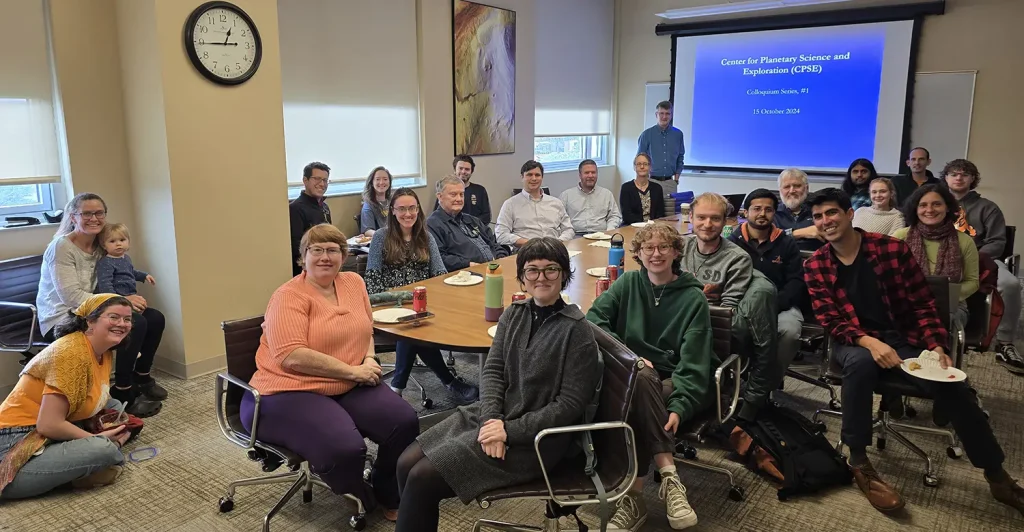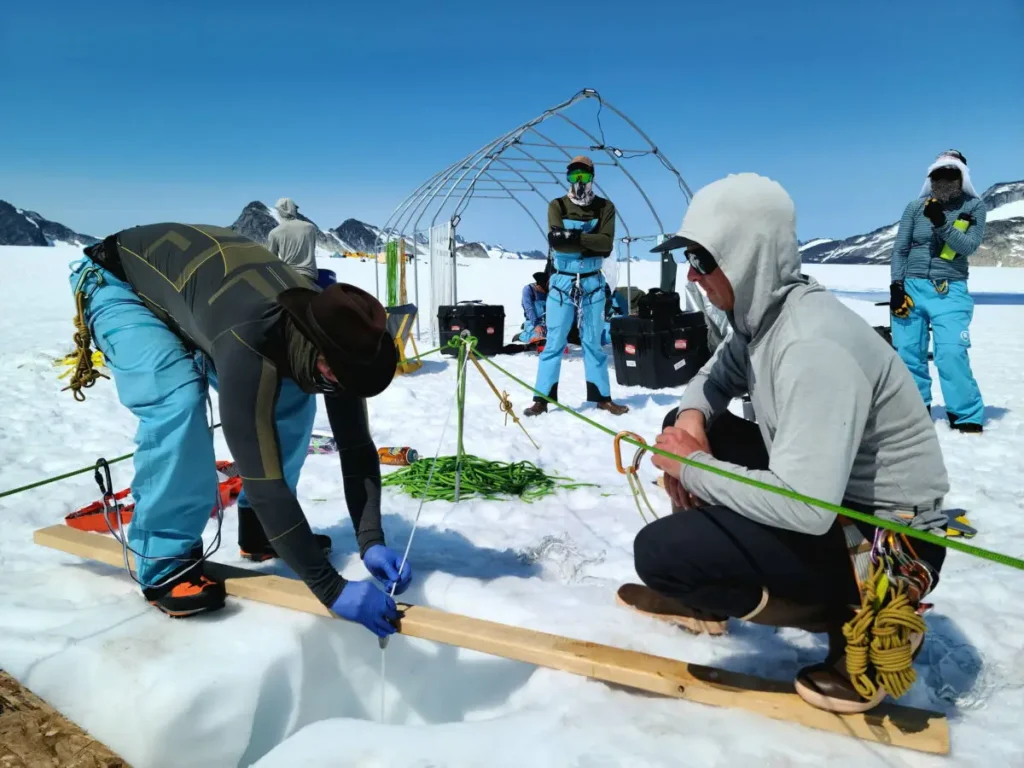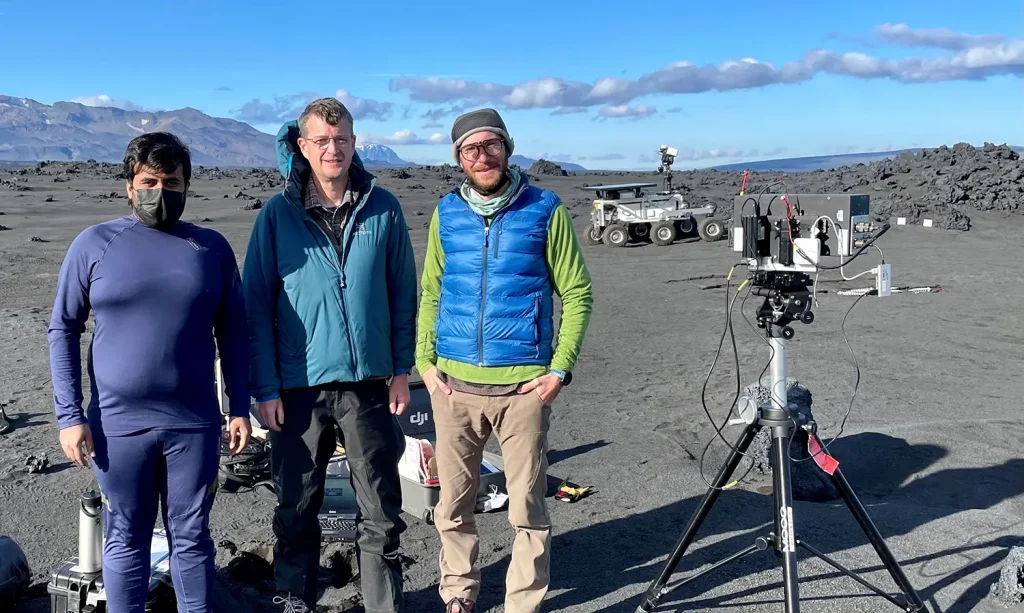UT’s Center for Planetary Science and Exploration Takes Off

The new UT Center for Planetary Science and Exploration (CPSE) launched into orbit this summer, bringing opportunities for College of Arts and Sciences (CAS) faculty and students to engage in new areas of interdisciplinary collaboration.
Professor Jeffrey Moersch, from the Department of Earth, Environmental, and Planetary Sciences (EEPS), directs the center with support from other EEPS faculty, including Associate Professor Nick Dygert, who oversees the Tennessee Space Grant Consortium.
“CPSE is an umbrella organization that brings together people from across UT who conduct research related to planetary science and exploration,” said Moersch. “This includes those who study the fundamental nature of other planets and how they illuminate our understanding of the Earth, as well as those who develop and build the tools that enable this work.”
The center facilitates communication among its members to encourage creative new ideas for research projects.
“In the longer term, CPSE hopes to have the capability to credibly propose very large projects in planetary science and exploration, such as building and operating instrumentation and other hardware for future spaceflight missions in the solar system,” said Moersch.
Broader Scope

CPSE replaces the previous Planetary Geosciences Institute (PGI), which specifically focused on better understanding solid bodies across the solar system.
“CPSE’s scope is intended to be broader,” said Moersch. “While it includes all the topics that previously fell under PGI, it also embraces other aspects of planetary science and exploration research. For example, CPSE is also meant to be a home for researchers working in the areas of astrobiology, flight hardware engineering development, and those who communicate the excitement of planetary exploration to the public.”
CPSE looks to bridge gaps between disciplines by encouraging members to learn about potentially relevant cross-campus research capabilities. They will also make connections to promote research across the broader community.
“CPSE will provide an outward-facing, unifying ‘brand’ for all planetary-related research at UT,” said Moersch. “That will make it easier for members of the public to learn about the work being conducted in these areas at UT.”
Space for Students
CPSE’s educational outreach arm, supported by the Tennessee Space Grant Consortium, is an ongoing effort to bring space-related content to students at UT and across the state. The consortium provides salaried roles for undergraduate students to be directly involved in planetary science related research conducted by CPSE faculty.
“Outcomes for the students are tremendous,” said Dygert. “They are mentored by faculty and their work hours are redirected toward research, giving them the foundation they need for admission to competitive graduate programs.”
Undergraduate researchers can present their work at international science meetings and contribute to relevant publications, enhancing the reputation and professional footprint of CPSE faculty research groups. The undergraduate research engagement enhances project impact and makes proposals for federal funding more competitive.
Space Grant also partners with community organizations such as K-12 schools and the Muse children’s museum, inspiring primary and secondary students, and providing pathways for community engagement by CPSE faculty that otherwise wouldn’t exist.
Space Grant also supports undergraduate rocketry and robotics teams that compete in NASA engineering challenges every year, training the next generation aerospace workforce, bolstering UT’s reputation in the aerospace community, and enhancing student recruitment.
Reaching New Heights

“We anticipate that the initial two-year incubation period for CPSE, with its focus on connecting planetary-related researchers across campus, will result in new, medium-sized, cross-disciplinary grant proposals that might not have been contemplated otherwise,” said Moersch. “In the longer term, CPSE seeks to build the planetary science and exploration capabilities at UT to the point where, like some of our aspirational peer institutions, we are able to produce fundable proposals for large space flight projects.”
A major component of CPSE’s initial work as it gets started this semester is to identify and invite researchers in relevant disciplines to join the center and help guide its development. PGI previously included participation from UT’s Tickle College of Engineering, and this interaction is expected to expand with CPSE.
“Other colleges will also be surveyed for potential members,” said Moersch. “There are faculty of the College of Communication and Information or the College of Education who can collaborate with CPSE scientists and engineers on bringing the excitement of their work into classrooms and to the public at large.”
Faculty members in adjacent fields who are interested in getting involved with planetary-related research are encouraged to contact Moersch.
“Our existing members have deep experience in writing grant proposals for NASA,” he said. “We hope to help colleagues who are interested in transitioning into this field learn the ropes.”
By Randall Brown